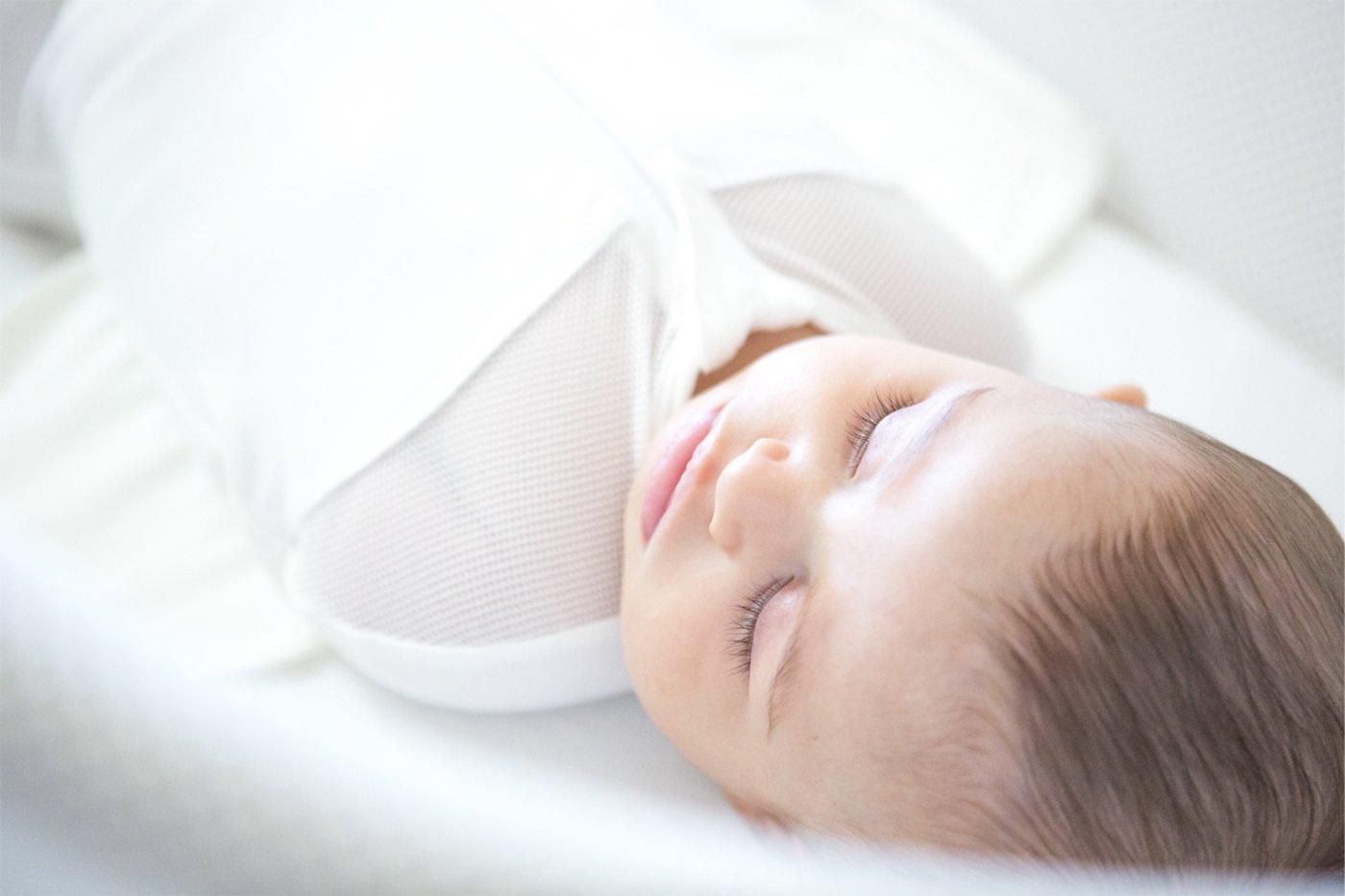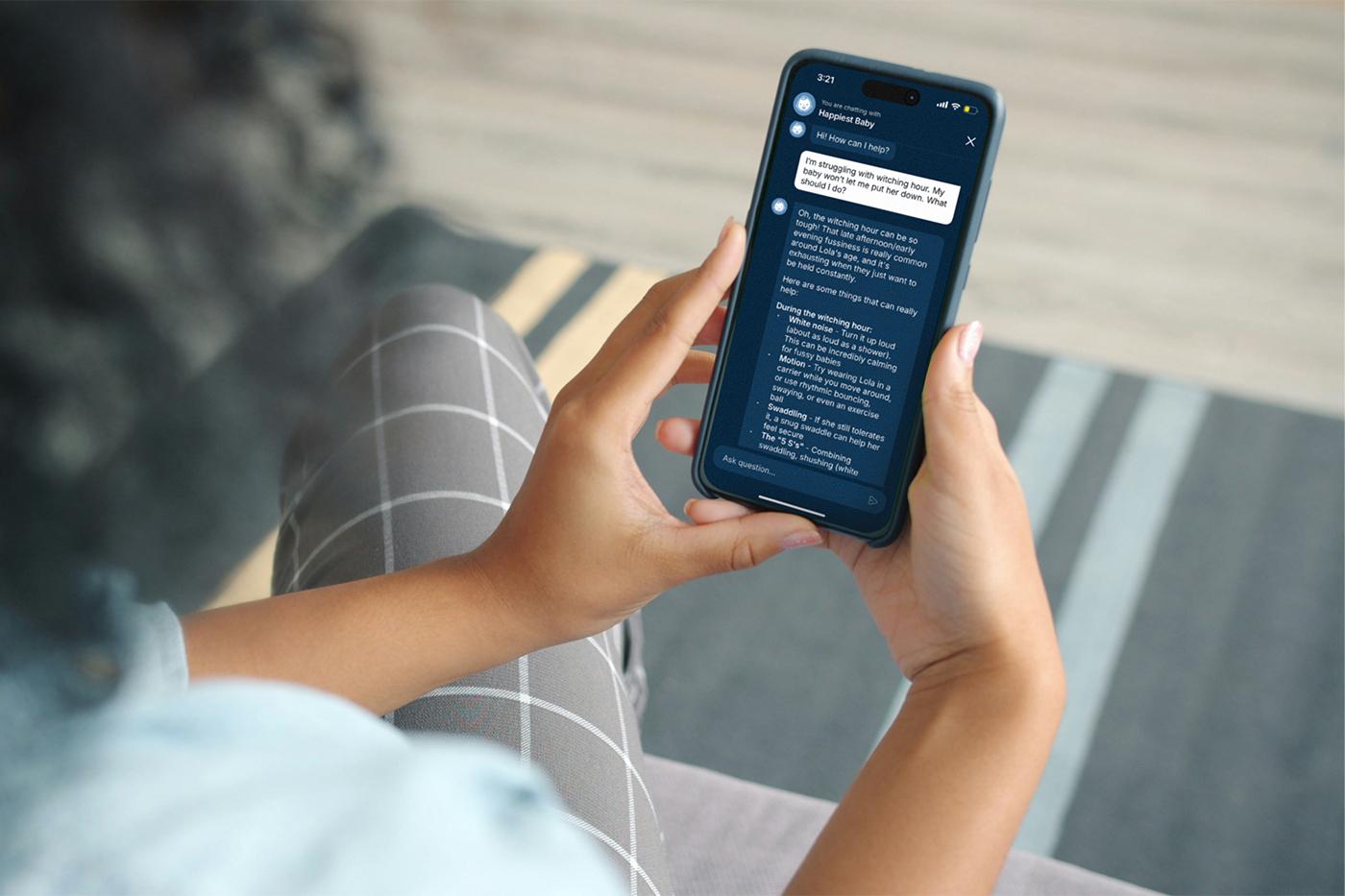SNOO
SNOO Helps Babies Sleep…Even Through Growth Spurts, Regressions, and Teething
At night, we cycle up and down—between light and deep sleep—punctuated by 2-4 drowsy wakings.

Written by
Dr. Harvey Karp

Most parents know babies need to awaken and eat every few hours during the first weeks of life. They then expect stretches of sleep to get longer and longer, until they can finally 'sleep through the night'. But the reality is that most babies go through rough patches or sleep regressions, even in SNOO.
The great thing is that SNOO was designed to aid infant sleep during these rocky times—the Happiest Baby App has several settings you can customise to give your baby the comforting he or she needs.
Why Sleep Struggles Happen to Newborns
When should a baby be able to sleep through the night? Four months? Six months? Actually, this is a trick question. The answer is never! In truth, babies never sleep through the night (and neither do adults).
At night, we cycle up and down—between light and deep sleep—punctuated by 2-4 drowsy awakenings. If everything is fine, we dive back into sleep and do not even remember rousing. But if something is wrong, we may awaken fully.
Your baby enters light sleep every 1 hour. And, if something has changed since she fell asleep (her nose is stuffy, she is a little hungry, her gums are sore, she hears noise from the telly or the street), she may awaken. Not to mention the growth-spurt-related sleep regressions that commonly occur in infants!
Another common struggle is the dreaded 3- or 4-month sleep regression. Around this time, babies LOVE to chat, flirt and smile with mum and dad! When they awaken, they may call out for their BFFs to come cuddle or just 'hang out'. It is like your little social butterfly is saying, 'Hey, you with the long hair. Come back and play!'
That is why families get the most benefit when they use SNOO for 6 months…you do not want to wean too early. SNOO can help babies quickly recover from these ups and downs and return to solid slumber. Unless your baby is over the 11,5 kg weight limit, there really is no rush to transition to the cot.
How to Adjust SNOO to Lessen Sleep Struggles
Now, here is the good news: If your baby’s sleep has suddenly dipped, you can use the Happiest Baby App and try these tips to get your baby back on track:
- More milk: If your baby is suddenly hungrier at night, offer more milk during the day. Wake her to eat if she is napping longer than two hours, alternate your breasts every 5 to 7 minutes during a feed to boost the calories and try a dream feed. (If she does not want to concentrate on her daytime feedings, feed in a room away from distractions with some strong white noise in the background.)
- More jiggle/shush: Babies who wake because of sleep regressions often need a few weeks of rocking/shushing on a higher level. (Think of it like driving around with your baby all night, but safer, easier and less polluting.) Go to Settings > Preferences > Starting Level Motion...to pick a higher baseline.
- More jiggle/shush 2: Another way to give more soothing sensations is to 'lock' SNOO on the purple or green level. This is great for babies who need a bit more oomph, but do not like when the bed revs up too much. Like your car’s cruise control, locking provides a more robust level of motion all night. When SNOO is running at the motion level in which you would like it to stay, quick press the Lock icon below the Play/Pause button on the SNOO dashboard. You should see the icon lock itself meaning it’s engaged! Note: SNOO will not respond to your babies cry while 'locked' on the selected level.
Babies who do better when SNOO is locked higher (or the baseline is raised) usually need it for a while. After two to four weeks, trying the lower level again will let you see if your child’s sleep pattern is back to normal.
SNOO Helps Those Baby Sleep Regressions
Teething, hunger, and growth spurts happen. Fortunately, SNOO’s customisable womb rhythms can often be like a magic wand turning cranky babies into solid sleepers.
And one final thing—we love to help! So, do not hesitate to reach out! Happiest Baby’s smart and friendly specialists can answer any questions you might have.
Disclaimer: The information on our site is NOT medical advice for any specific person or condition. It is only meant as general information. If you have any medical questions and concerns about your child or yourself, please contact your health provider. Breastmilk is the best source of nutrition for babies. It is important that, in preparation for and during breastfeeding, mothers eat a healthy, balanced diet. Combined breast- and bottle-feeding in the first weeks of life may reduce the supply of a mother's breastmilk and reversing the decision not to breastfeed is difficult. If you do decide to use infant formula, you should follow instructions carefully.
SHARE THIS ARTICLE
PARENT PICKS
Bestsellers



















